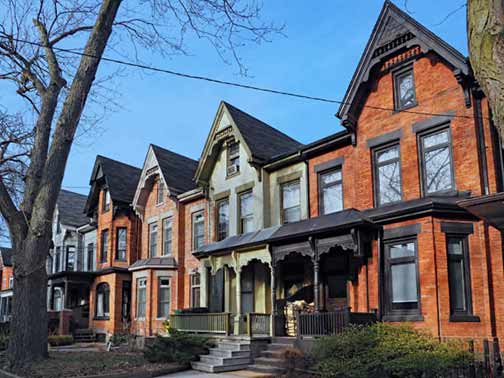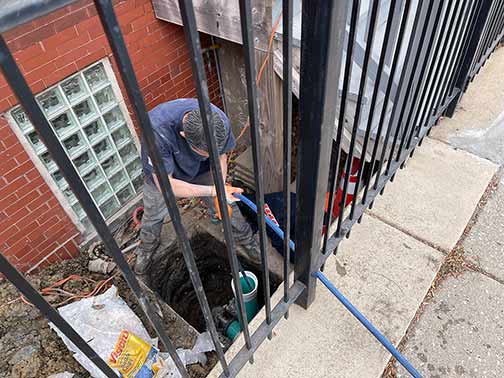
Chicago is known for its historic neighborhoods and beautiful older homes. These homes have stood the test of time and are full of character and charm. However, along with their age comes the need for regular maintenance, especially when it comes to the drain and sewer line systems. Here we will explore the importance of maintaining these systems in older Chicago homes and provide some valuable tips for homeowners.
Understanding the Challenges of Older Drain and Sewer Line Systems
Older drain and sewer line systems in Chicago homes are prone to a variety of issues due to their age and design. Over time, these systems can develop cracks, leaks, and clogs that can lead to serious problems if not addressed promptly. Additionally, the materials used in older homes may not be as durable as modern pipes, making them more susceptible to wear and tear.
One of the main challenges with older drain and sewer line systems is the accumulation of debris and sediment. Over the years, grease, hair, soap residue, and other materials can build up in the pipes, causing blockages and hindering the proper flow of wastewater. This can lead to backups, foul odors, and even damage to the plumbing system.
The Benefits of Regular Maintenance
Regular maintenance of drain and sewer line systems in older Chicago homes can provide numerous benefits, both in terms of cost savings and overall quality of life. Here are some of the key advantages:
Prevents Costly Repairs
By taking proactive measures to maintain your drain and sewer line systems, you can prevent major issues from occurring. Regular inspections and cleanings can identify potential problems early on, allowing you to address them before they escalate into expensive repairs. This can save you a significant amount of money in the long run.
Extends the Lifespan of the System
Older drain and sewer line systems are more likely to experience wear and tear, leading to premature aging. However, with regular maintenance, you can extend the lifespan of these systems. By keeping the pipes clean and addressing any issues promptly, you can ensure that your system continues to function effectively for years to come.
Reduces the Risk of Water Damage
A clogged or damaged drain or sewer line can cause water to back up into your home, resulting in water damage, mold growth, and other costly problems. Regular maintenance can help prevent these issues by keeping the drainage system clear and ensuring proper water flow. This means less risk of water damage and a healthier living environment.
Improves Plumbing System Efficiency
When a drain or sewer line becomes clogged or damaged, it can hinder the overall efficiency of your plumbing system. This can lead to slow drains, low water pressure, and other inconveniences. Regular maintenance helps keep your drain and sewer lines clear, allowing for proper water flow and optimal plumbing system performance.

Professional plumbers can use specialized tools and techniques to remove debris, sediment, and tree roots that may be obstructing the pipes.
Tips for Maintaining Drain and Sewer Line Systems
Now that you understand the importance of maintaining drain and sewer line systems in older Chicago homes, let’s explore some practical tips to help you keep your system in top shape:
Schedule Regular Inspections
It’s crucial to have your drain and sewer line systems inspected by a professional plumber on a regular basis. A thorough inspection can identify any signs of damage, clogs, or leaks that may be affecting the system. By catching these issues early, you can avoid more extensive damage and costly repairs.
Perform Routine Cleanings
In addition to inspections, regular cleanings are essential for maintaining the health of your drain and sewer lines. Professional plumbers can use specialized tools and techniques such as a hydro jet drain cleaning service to remove clogs, sediment, and tree roots that may be obstructing the pipes. This will help improve the flow of wastewater and reduce the risk of backups.
Avoid Flushing Non-Biodegradable Items
To prevent clogs in your drain and sewer lines, it’s important to only flush biodegradable materials down the toilet. Avoid flushing items such as wipes, feminine hygiene products, cotton balls, and paper towels, as these can accumulate and cause blockages. Proper disposal of these items can save you from plumbing headaches down the line.
Be Mindful of Grease Disposal
Grease and cooking oil should never be poured down the drain, as they can solidify and create stubborn clogs. Instead, let grease cool and solidify in a container and dispose of it in the trash. Additionally, using sink strainers can help catch food particles and prevent them from going down the drain.
Address Plumbing Issues Promptly
If you notice any signs of plumbing issues such as slow drains, foul odors, or gurgling sounds, don’t ignore them. These can be indications of underlying problems in your drain and sewer line systems. Contact a professional Chicago plumber as soon as possible to diagnose and resolve the issue before it worsens.
Final Thoughts
Maintaining the drain and sewer line systems in older Chicago homes is essential for preserving their functionality and preventing costly repairs. By scheduling regular inspections, performing routine cleanings, and practicing proper disposal habits, you can keep your system in optimal condition. Remember, proactive maintenance is key to avoiding major plumbing issues and ensuring a comfortable living environment in your cherished older home.